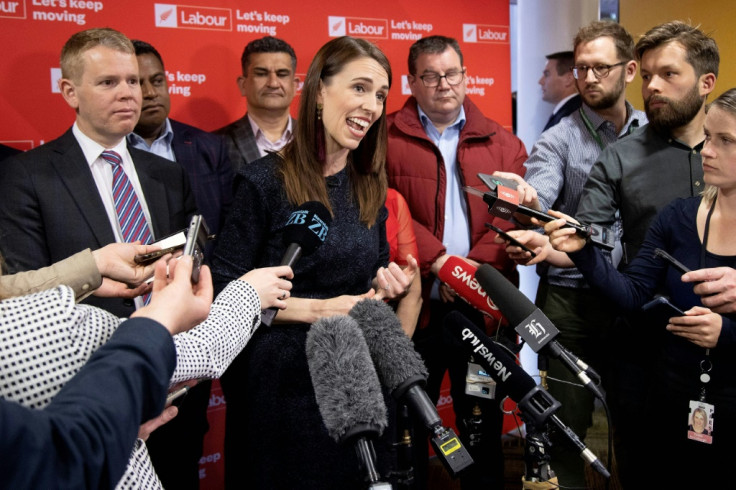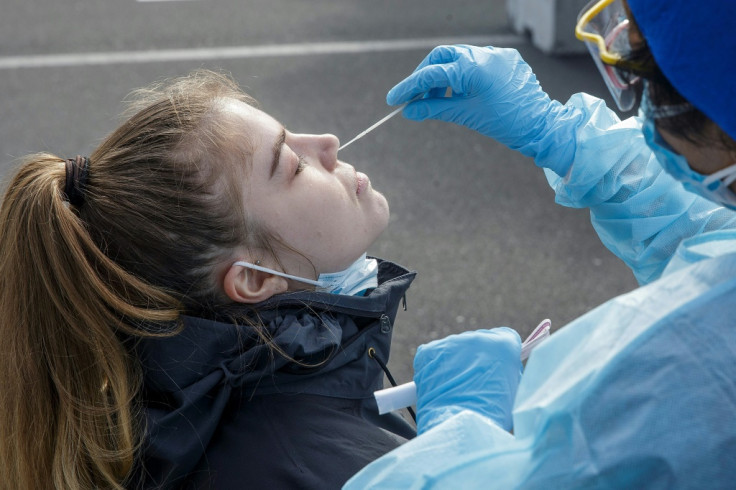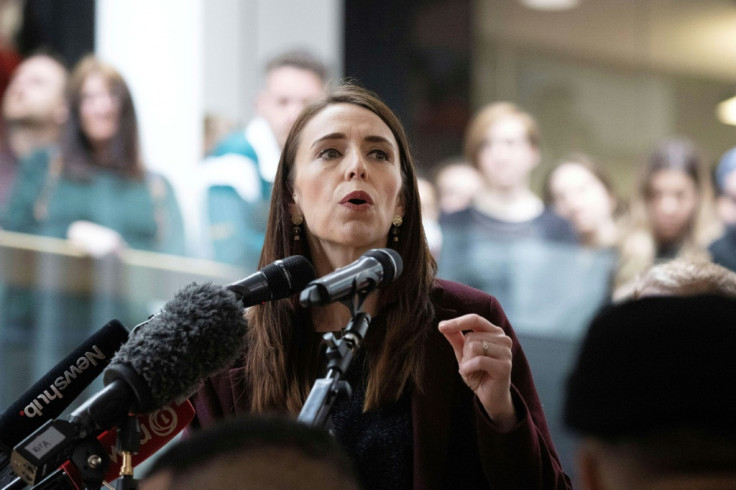Jacinda Ardern set to win in New Zealand's 'Covid election'
Masks and distancing are no longer mandatory in New Zealand, an achievement upon which Ardern has staked her political future in Saturday's general election.
There were no masks on display as about 1,000 university students gave Jacinda Ardern a rock-star reception during her final Wellington campaign rally this week -- and the New Zealand prime minister was fine with that.
Ardern, also without a face covering, happily posed for selfies alongside dozens of youthful supporters, rubbing shoulders with a disregard for social distancing that would spark outrage almost anywhere else in the world.
Success containing Covid-19 means masks and distancing are no longer mandatory in New Zealand, an achievement upon which Ardern has staked her political future in Saturday's general election.

"When people ask, is this a Covid election, my answer is yes, it is," the charismatic centre-left leader said when launching her bid for another three-year term.
Indications so far are that the strategy is working, with Ardern's Labour Party enjoying a strong lead in opinion polls after a campaign light on policy detail but full of references to quashing the coronavirus.
"Who's better placed to keep New Zealand safe and who's better placed to get us on track to recovery?" the 40-year-old asked during a debate with Judith Collins, leader of the main opposition National Party.
New Zealand has recorded just 25 Covid-19 deaths in a population of five million and its response has been singled out for praise by the World Health Organization.

Aside from closed borders and a pandemic-induced recession, everyday life on the South Pacific nation is near-normal, as unrestricted crowds flock to sporting events and bars without fear of infection.

The pandemic upended the election, which was initially poised as a cliffhanger, with some criticising Ardern's policy shortcomings while others praised her leadership after last year's Christchurch mosques terrorist attack in which 51 people died.
The students cheering in Wellington on Tuesday said the coronavirus crisis had reinforced their support for Ardern.
For history major David Coyle, it was enough to overcome disappointment with her failure to meet promises on issues such as housing affordability and reducing child poverty.
"This year's all about the Covid and she's done a pretty damn good job on that," he told AFP after Ardern's appearance at Wellington's Victoria University.

Geography student Alyssa Thomas said Ardern, an adept user of social media, had earned the right to mingle with supporters ahead of Saturday's polls.
"Most of my friends follow her... I think she compares pretty well to (US President) Donald Trump at the moment, some of my friends are from America and they like her," Thomas said.
As Ardern was being feted before adoring students, Collins was across town at a more modest meeting in a tiny suburban community centre attended by about 30 National Party faithful.
The combative 61-year-old, nicknamed "Crusher" for her hardline policies while police minister under a former government, has performed well in debates but so far failed to generate campaign momentum.
She took over in July as the National Party's fourth leader since the last election, but is polling at 31 percent, 16 points down on the conservative party's support when it last won an election in 2014.
Collins has attacked border failures that likely led to a second wave of infections in Auckland in August and argues the National Party is best placed to steer New Zealand through its economic crisis.
However, the Auckland spike has now been eliminated and National's economic credibility was damaged when its proposed budget plan proved to be out by at least NZ$4.0 billion (US$2.7 billion).
"I never give up, I'm a fighter, always keep going and I'm utterly positive for our country, I've got a vision to sell," Collins said.
About 3.4 million people are registered to vote in the election, which was originally set for September 19 but delayed by the Auckland outbreak.
Labour currently holds power in coalition with the Greens and the New Zealand First party, led by Deputy Prime Minister Winston Peters, who will struggle to remain in parliament.
However, polls suggest Labour has a chance of winning office with an outright majority, a situation unprecedented since New Zealand adopted a German-style mixed-member proportional (MMP) electoral system in 1996.
Even if Ardern falls short, support from the Greens would likely get her over the line.
Voters will also cast ballots in two referendums, one on legalising recreational cannabis and the other on legalising euthanasia, although the results of those votes will not be known until October 30.
Copyright AFP. All rights reserved.
This article is copyrighted by International Business Times, the business news leader





















